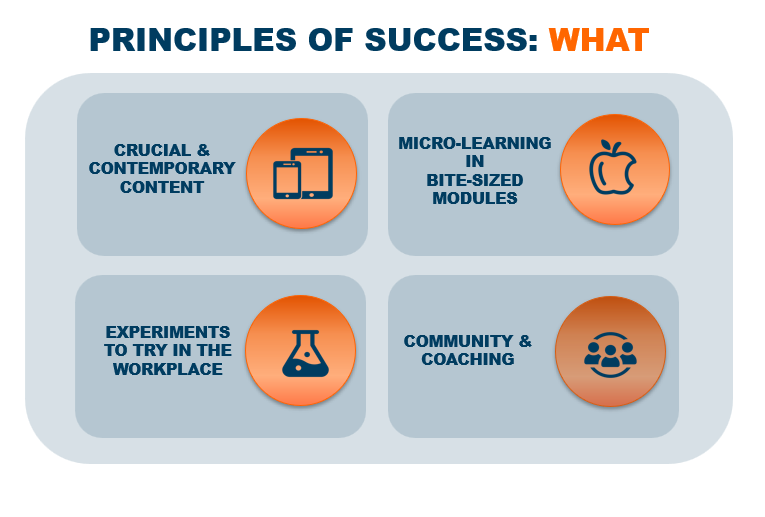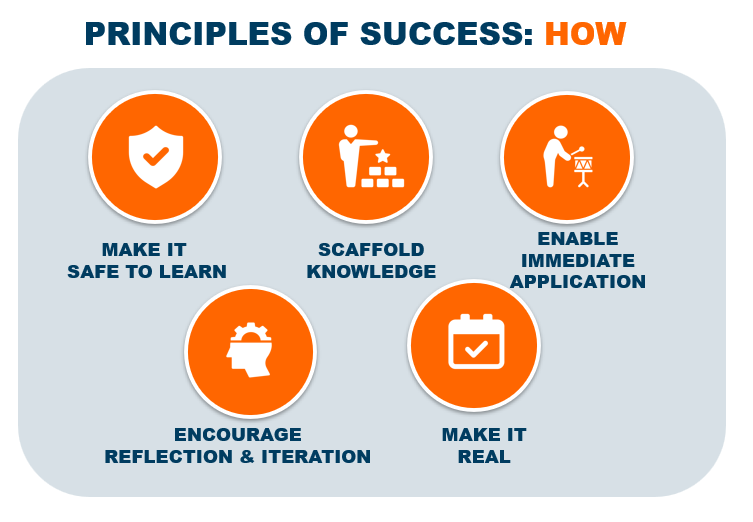When you start with success principles…the rest falls into place.
Described as a framework for putting advice into action, Julian Shapiro, in his blog post on ‘Starting Principles’, says that when we implement starting principles, we refine our identity.
This is so true! Here’s how it works for us:
Drawing on our experience in learning and human behaviour, we created a set of Success Principles to guide our workshop and course design, to ensure we deliver a valuable user experience.
They align with our mission of ‘building future-fit leaders and job-ready change managers’.
Here’s our five Success Principles:
1. Make it safe to learn
People need to feel safe to ask questions and test their understanding. In real time workshops, we provide various options for our learners to engage. In our online learning programs, self-assessments and quizes are private and offer multiple attempts to complete certification.
2. Scaffold knowledge
Scaffolding knowledge means that we move learners towards deeper understanding and application progressively and in small bites. We also provide further resources for the curious learners so they can continue to build on their learning.
3. Enable immediate application
We understand new information excites learners but sometimes they don’t know where to start. We make this easy with ideas on what can be carried out straight away, often little-by-little, so it’s also safe to try.
4. Encourage reflection and iteration
Our experiment canvas prompts reflection on insights and what can be done differently or better. We know that this is where further learning occurs, to build confidence and capability.
5. Make it real
We don’t just teach theory – we explain just enough to provide context and then we dive straight into the practical application, how it works in the workplace or in a personal setting

Not just the ‘how, here’s the ‘what’ of our success principles
In the design of the the courses we:
- Provide crucial and contemporary content
- Creating learning in small chunks, in bite-sized modules so it’s brain friendly
- Recommend and encourage experiments so there is an opportunity to test and learn via immediate application and reflection
- Offer support options such as coaching and online communities
Our Success Principles have proved to be robust guidelines.
When we create a new course or workshop, we cross-check that the learning design and intent aligns with them.
How are you using success principles to guide the consistency and quality of your change programs?
Reference:
https://www.julian.com/blog/starting-principles


































